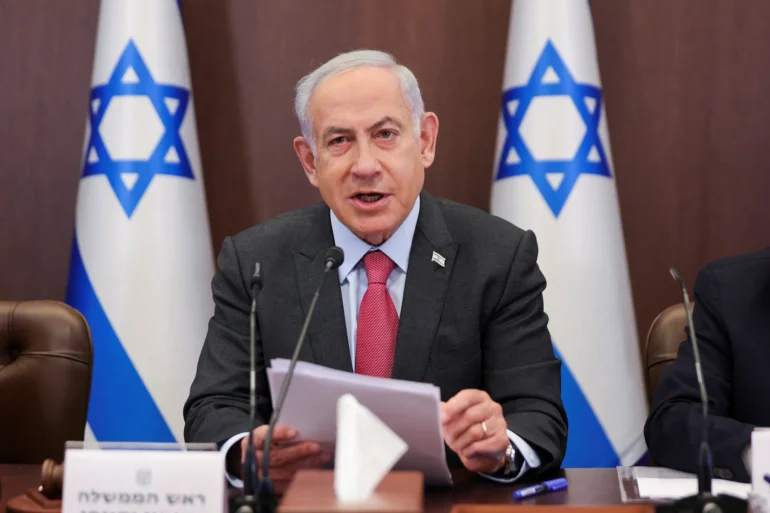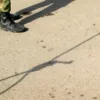Israeli Prime Minister Benjamin Netanyahu announced that he would present a US-brokered ceasefire proposal with Hezbollah in Lebanon to his government for approval as early as Tuesday evening.
In a televised address, Netanyahu stated he would submit a “ceasefire outline” to his ministers, though he did not specify how long the truce would last, explaining that its duration would depend on developments in Lebanon. He warned that if Hezbollah violated the ceasefire or attempted to rearm, Israel would respond with force.
The United States, along with France, has been leading efforts for a ceasefire in Lebanon, and Netanyahu confirmed that Israel is maintaining its military freedom of action in full coordination with the US. Israel is facing what it describes as a seven-front war, involving Gaza, the West Bank, Yemen, Iraq, Syria, Lebanon, and Iran.
As Netanyahu discussed the ceasefire, Israeli forces carried out airstrikes on Beirut, while the Israeli military reported that around 15 projectiles had entered Israeli airspace from Lebanon.
The conflict between Israel and Hezbollah escalated after Hezbollah launched attacks in support of Hamas following the latter’s October 7 attack on Israel, which ignited the ongoing war in Gaza.
The war in Lebanon has resulted in at least 3,823 deaths in Lebanon, mostly since September, and 82 Israeli soldiers and 47 civilians have also been killed.
Netanyahu emphasized that the ceasefire would allow Israel to focus on the “Iranian threat” and intensify its efforts against Hamas in Gaza, asserting that without Hezbollah’s involvement, Hamas would be left isolated.
However, the ceasefire proposal has faced strong opposition. Far-right National Security Minister Itamar Ben Gvir criticized the plan as a “historic mistake,” arguing that it would not achieve the goal of returning residents to northern Israel, who have been displaced by Hezbollah’s rocket fire.
Opposition leader Yair Lapid also condemned the proposal, blaming Netanyahu for the situation in northern Israel and urging a deal to bring hostages home.
Further dissent came from David Azoulay, mayor of Metula, Israel’s northernmost town, who refused to meet with Netanyahu to discuss the ceasefire, claiming the decision had already been made without consultation.
A recent poll showed mixed opinions among Israelis, with 37% supporting the proposal, 32% opposed, and 31% uncertain.


